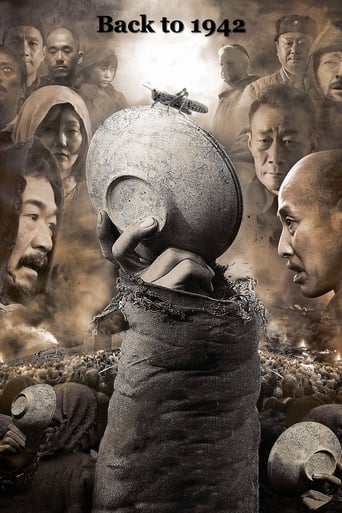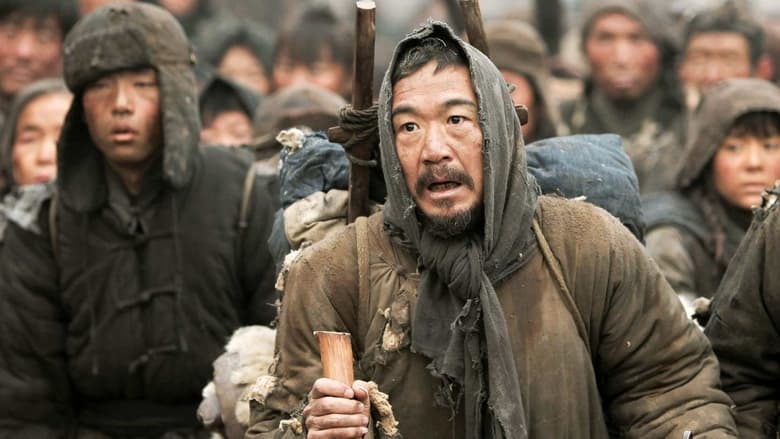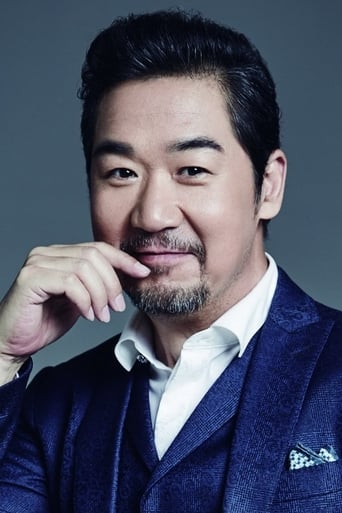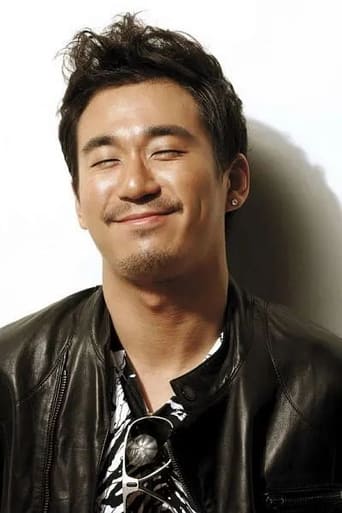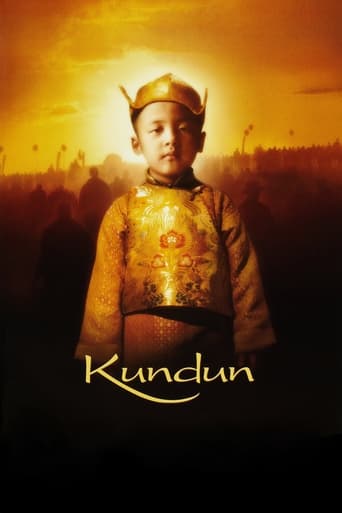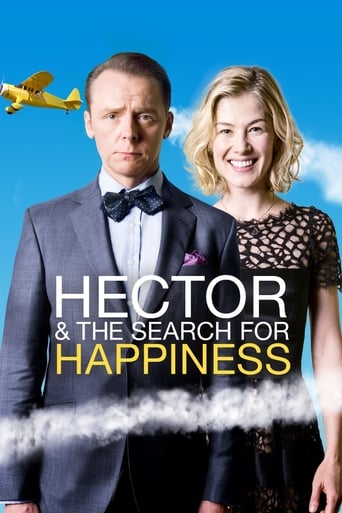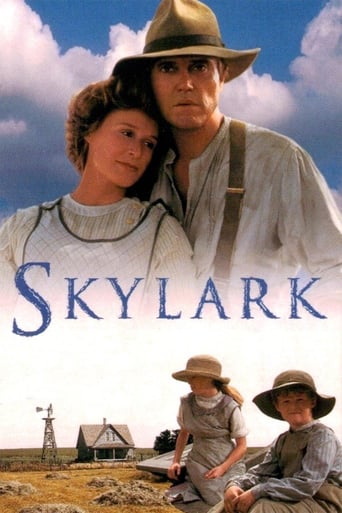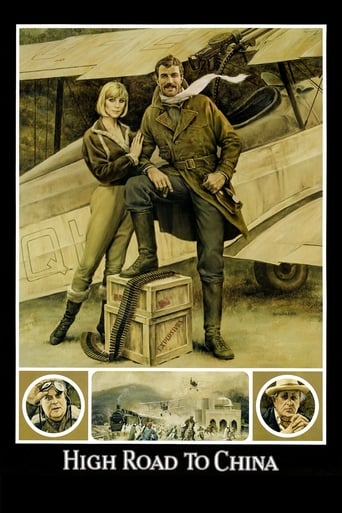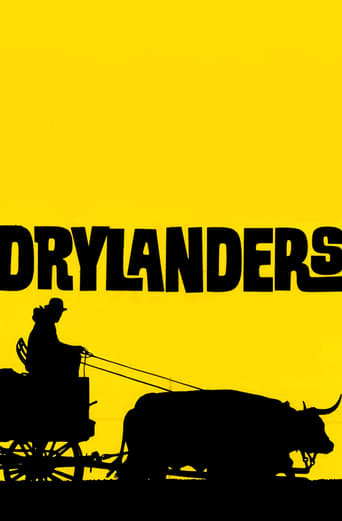Back to 1942 (2012)
In 1942, Henan Province was devastated by the most tragic famine in modern Chinese history, resulting in the deaths of at least three million men, women and children. Although the primary cause of the famine was a severe drought, it was exacerbated by locusts, windstorms, earthquakes, epidemic disease and the corruption of the ruling Kuomintang government.
Watch Trailer
Free Trial Channels
Cast


Similar titles
Reviews
One of the best films i have seen
Good , But It Is Overrated By Some
Best movie of this year hands down!
While it is a pity that the story wasn't told with more visual finesse, this is trivial compared to our real-world problems. It takes a good movie to put that into perspective.
Labelled 'the Spielberg of China' with 15 box office successes in the last 20 years ranging from family-friendly comedies poking fun at China's materialistic culture to weightier, big budget historic epics such as 'Assembly', 'Aftershock' and now 'Back to 1942', Feng Xiaogang has become the most popular director of mainstream cinema in China. Yet, despite the work of Chinese directors such as Chen Kaige, Zhang Yimou, Wong Kar-Wai and Ang Lee, Feng Xiaogang is virtually unknown to Western audiences, something that the Chinese government is attempting to put right by submitting 'Back to 1942' as the country's official Oscar submission for Best Foreign Language Film this year.Adapted from the book 'Remembering 1942' by Liu Zhenyun, the film is a historical disaster epic following the fates of refugees during the drought and famine in Henan Province, which devastated the region and left 3 million dead of starvation during the Second Sino-Japanese War (1937-45). As well as featuring famous Chinese stars such as Chen Daoming (Aftershock) and Zhang Hanyu (White Vengeance), the film is one of the few Chinese productions to boast Hollywood talent in the form of Oscar winner, Adrien Brody and Tim Robbins, recalling Christian Bale's turn in 'The Flowers of War' (2011) chronicling the Japanese attack on Nanking.The film follows the fortunes of landlord Fan (Zhang Guoli), who with his family joins the mass exodus of people after their village is destroyed by bandits, leaving behind their privileged lifestyle and falling in with the desperate masses as they head west looking for solace and hope. Hoping to lead the refugees is deserter turned priest An Ximan (Zhang Hanyu), though he soon comes to realise the hopelessness of the situation, with starvation spreading, (Chinese) soldiers raiding for supplies, and the Japanese bombing indiscriminately. With Nationalist (Kuomintang) politicians bickering over what to do and how to profit from the situation with their American, British and Soviet allies, it is left to Time magazine correspondent, Theodore White (Adrien Brody), to reveal the true extent of the catastrophe that has befallen Henan Province by venturing into the disaster zone and exposing the full horror of the people's suffering.Back to 1942 is a hard hitting and unrelentingly grim disaster movie playing through the eyes and experiences of its ensemble cast, switching between the three main stories of Fan, White and the Nationalist and provincial governments at a pace that cracks along, despite its 145 minutes length. Through his earlier work Feng has demonstrated a talent for tapping into public sentiment and mining melodrama on a national scale. The result has been a slew of hit films that have dealt with little known areas of Chinese history and in doing so, reveals a little more about China itself and for a Western audience that is a welcome change from the usual diet of Hollywood teen comedies, superhero movies and remakes.Feng said recently in an interview that if it were not for censorship, Back to 1942 'would be even more cruel'. I am not sure how this could be possible without the film lapsing into parody. Feng pulls few punches and does a good job of recreating a believable sense of desperation and despair and at times, darkly satirical comedic moments are exposed which puts the viewer in an awkward position as to whether to laugh or cry (the loss of the donkey being a good example). In part this is due to the real horror of the situation, depicted in fairly graphic detail in the film, as the refugees run out of food and trudge onwards through incredibly harsh conditions, being reduced to eating bark and eventually resorting to cannibalism and selling family members for meagre bags of millet in order to survive. Feng presents much of this without fuss or fanfare and the film is all the more harrowing for the way in which it shows conditions spiralling quickly out of control against the backdrop of the government jockeying for position.Where film can often be politicised by the Chinese authorities as criticisms of the government, Feng does a good job of appearing neutral and never assigning blame for the disaster, nor criticising the behaviour of the Chinese soldiers who frequently rob the refugees for their own survival. Even the casual and indiscriminate violence of the Japanese soldiers is portrayed as a by product of war, rather than as any grand social or historical criticism, which no doubt the Chinese government would have preferred. In doing so, the film has escaped much of the censorship that plagues Chinese directors who are often welcomed as the darlings of the international film festival circuit.For students of Chinese history, the complete omission of the government's taxation policy is jarring since it made the food shortages far worse, nor is there any reference to Mao Zedong and the communists, ironic given that the refugees are travelling to Shaanxi Province to escape the famine which was the headquarters of Mao's fledgling Chinese Communist Party.Despite these pedantic omissions, Back to 1942 is a gripping telling of a little known period of Chinese history that wears its heart on its sleeve without the film being too melodramatic, or trying to drown the viewer in manipulative tears. No doubt tears will be shed as a result of the horror of the situations that the refugees find themselves in but Feng tries hard to make his film politically neutral and to tell the story as it was. Feng is one of China's most talented directors and the huge budget he has to play with (by Chinese standards) really shows up on screen with some stunning visuals and action. Though grim and quite depressing, Back to 1942 is a worthy addition to the pantheon of epic disaster movies and succeeds in revealing the horrific human suffering behind a monstrous and quite possibly avoidable tragedy.
This is a profound story, beautifully told, interweaving the plight of a family of famine refugees with a depiction of the Chinese leaders and the difficult decisions they were faced with as the Japanese army closed in on Henan province in 1942.The plot develops in a most engaging manner, depicting the suffering of famine refugees as they trek across the barren, snowy countryside in an effort to reach Shaanxi. Interspersed, we see scenes depicting Chiang Kaishek and his ministers, coolly calculating the expedience of helping the refugees. The finely tailored costumes of Chiang and his secretary contrast with the rags of the refugees. We get the impression that the Chinese leaders are detached from the plight of the ordinary people.The movie depicts the pitiful plight of the refugees without succumbing to sentimentality. The characters are stark and persuasive. Acting and direction are superb. If you are interested in this period of history this movie will not disappoint.
Feng Xioagang can be considered China's - possibly Asia's - most substantial film maker. His output is increasingly imposing and his box office clout means that the content of his work must come under intense official scrutiny. That made the IF I WERE THE ONE movies quite amazing as an expression of the notion that to be rich is glorious.BACK TO 1942 is clearly a tent pole movie for the Chinese cinema and then carries a double load. It is an intense, long, demanding account of the 1942 Hunan famine and refugee exodus, made more terrible by the parallel war with the Japanese and also a revision of history with Chiang Kai Shek now shown as both calculating and remote, as well as caring and authoritative but only a support player in the story of the land lord and serf reduced to destitution on their awful journey.Intriguingly, Theodore White writer of sixties Wolper Documentaries and "The Mountain Road" shows up effectively in the person of Adrian Brody, as a character.Master crafted, some of the staging is exceptional. The bombing raids are great set pieces and the film manages to keep disaster chic in hand, even if it's so grim.Essential for the serious movie goer, a strain on the casual entertainment seeker.
A tamer version of my review in desensitized words: Good film, could've been a great film.A rather controlled and somber depiction of a dark chapter in modern history, subtly echoing another tragedy that happened 16 years later. Surprisingly un-judgmental and un-sentimental for a historical film recreating despair and lowest possible form of human existence.Feng presents the multiple layers of clues and facts that lead to the ultimate tolls almost as-matter-of-factly, leaving the audience putting together the puzzles and drawing their own conclusions, which is a rather clever way of avoiding censorship and engaging the audience.Could have been A LOT grittier and more affecting. The acting is powerful in this film. However for a film depicting a major famine that claimed over 3 million lives in recent history, not much huger is shown as visuals in the film, most of the lingering hunger is talked about/acted out (as opposed to being displayed visually) which reduces the general affecting power of the film.Xu Fan and Zhang Guo-Li are amazing in this film with their acting. Xu gives her most powerhouse performance yet, portraying the tough bottom- feeder hillbilly b*tch who would attempt anything/everything in defending her and her family's rights to live. However for a country woman who's been starving for over 100 days and more than willing to sell her bottom half for a couple of crackers, what's with her double- chin? (think Jennifer Lawrence's face in The Hunger Game – she can act all she wants but I'm sorry, girlfriend is just NOT that hungry) What TF happens to her makeup artist team and special visual effects people?!Adrien Brody is effectively engaging as a very eager T.H. White who's desperately trying to expose the truth, whether driven by his journalist instincts, Pulitzer, or a genuine sympathy for the poor and depraved. However don't even get me to start with Tim Robbins - why is he even in the film??? The couple of scenes he's in are cringe-inducing. Even if you edit them out altogether it would not affect the story's flow whatsoever.

